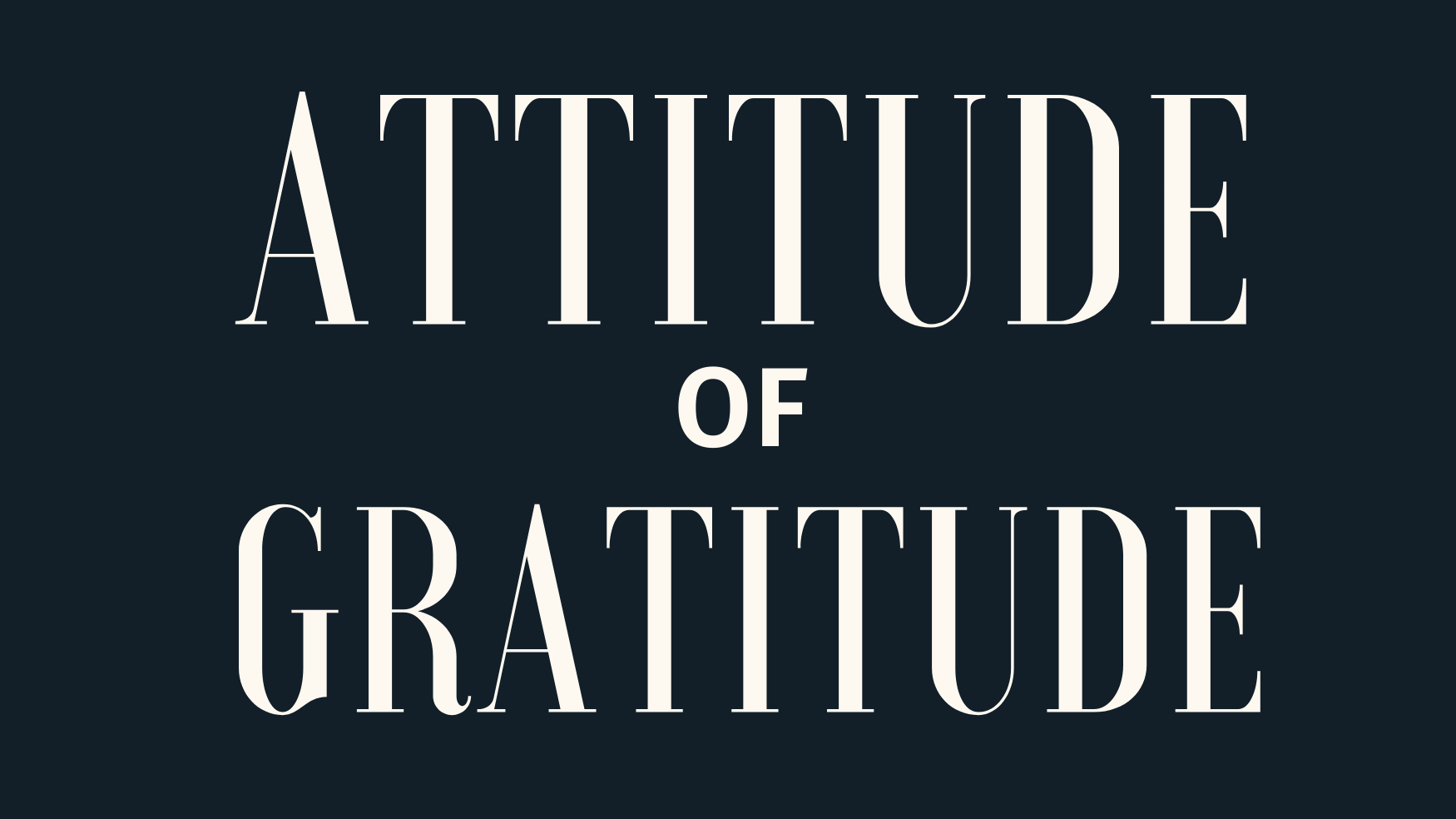
Nov 12 2021 Attitude of Gratitude
How does someone develop an attitude of gratitude?
To begin with: What is an attitude?
As one of my favorite writers says this, “The dictionary on my desk defines attitude as a manner of acting, feeling, or thinking that shows one’s disposition, opinion, mental set. That means that how we think determines how we respond to others. As a matter of fact, I’ve found that my view of others is a direct reflection of my own mental set. Our attitude toward the world around us, depends upon what we are ourselves. If we are selfish, we will be suspicious of others. If we are of a generous nature, we will be likely to be more trustful. If we are quite honest with ourselves, we won’t always be anticipating deceit in others. If we are inclined to be fair, we won’t feel that we are being cheated. In a sense, looking at the people around you is like looking in a mirror, you see a reflection of yourself.”
One of the traits of Jesus was this attitude of gratitude. There are a lot of Christ-like attitudes mentioned in the Bible, like love, patience, grace, et cetera. But Jesus only called attention to himself and his attitudes one time.
Matthew 11:28-30 says, “Then Jesus said, come to me, all you who are weary and carry heavy burdens, and I will give you rest. Take my yoke upon you. Let me teach you because I am humble and gentle and you will find rest for your souls. For my yoke fits perfectly. And the burden I give you is life.”
So he says, I come as a person who is gentle and humble in heart. And when it says heart, it is talking about the inward disposition.
I believe that our selfishness often keeps us from exhibiting an attitude of gratitude.
And from that, I conclude that a selfish person is often an ugly person. Grateful people are a delight to be around and their presence is powerful. It is simply not possible to simultaneously be grateful and be selfish.
Here’s the thought:
“Greece said, ‘Be wise, know yourself.’
Rome said, ‘Be strong. Discipline yourself.’
Religion said, ‘Be good. Conform yourself.’
Epic cronyism said, ‘Be census. Satisfy yourself.’
Education said, ‘Be resourceful. Expand yourself.’
Psychology said, ‘Be confident. Assert yourself.’
Materialism said, ‘Be possessive. Pleasure yourself.’
Asceticism said, ‘Be lowly. Suppress yourself.’
Humanism says, ‘Be capable. Believe in yourself.’
Pride says, ‘Be superior. Promote yourself.’
Jesus said, ‘Be unselfish. Humble yourself.’”
An unselfish person will be a humble person and that person will be a person full of gratitude.
You think about that.

